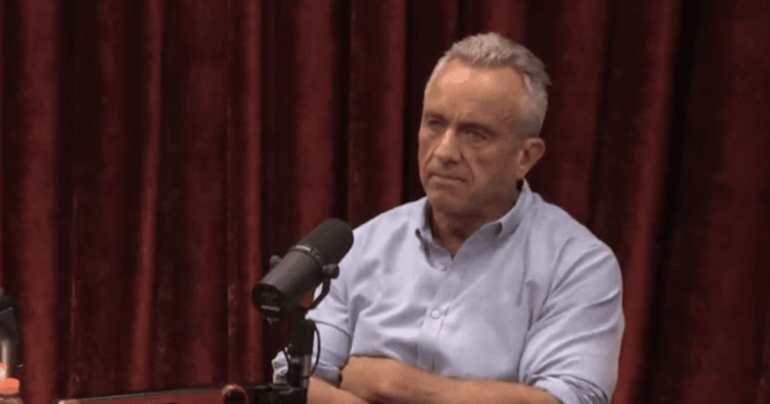🔴 Website 👉 https://u-s-news.com/
Telegram 👉 https://t.me/usnewscom_channel
Health and Human Services (HHS) Secretary Robert F. Kennedy Jr. said hospitals “allowed the organ procurement process to begin when patients showed signs of life.”
The announcement by the Department of Health and Human Services (HHS) follows “an investigation by its Health Resources and Services Administration (HRSA) that revealed disturbing practices by a major organ procurement organization.”
“Under @SecKennedy’s leadership, HHS is restoring integrity and transparency to organ procurement and transplant policy by putting patients’ lives first. These reforms are essential to restoring trust, ensuring informed consent, and protecting the rights and dignity of prospective donors and their families,” HHS said in a statement.
“Our findings show that hospitals allowed the organ procurement process to begin when patients showed signs of life, and this is horrifying. The organ procurement organizations that coordinate access to transplants will be held accountable,” RFK Jr. said.
“The entire system must be fixed to ensure that every potential donor’s life is treated with the sanctity it deserves,” he added.
Our findings show that hospitals allowed the organ procurement process to begin when patients showed signs of life, and this is horrifying. The organ procurement organizations that coordinate access to transplants will be held accountable. The entire system must be fixed to… https://t.co/DeiFa2FlEJ
— Secretary Kennedy (@SecKennedy) July 22, 2025
More from HHS:
HRSA directed the Organ Procurement and Transplantation Network (OPTN) to reopen a disturbing case involving potentially preventable harm to a neurologically injured patient by the federally-funded organ procurement organization (OPO) serving Kentucky, southwest Ohio, and part of West Virginia. Under the Biden administration, the OPTN’s Membership and Professional Standards Committee closed the same case without action.
Under Secretary Kennedy’s leadership, HRSA demanded a thorough, independent review of the OPO’s conduct and the treatment of vulnerable patients under its care. HRSA’s independent investigation revealed clear negligence after the previous OPTN Board of Directors claimed to find no major concerns in their internal review.
HRSA examined 351 cases where organ donation was authorized, but ultimately not completed. It found:
- 103 cases (29.3%) showed concerning features, including 73 patients with neurological signs incompatible with organ donation.
- At least 28 patients may not have been deceased at the time organ procurement was initiated—raising serious ethical and legal questions.
- Evidence pointed to poor neurologic assessments, lack of coordination with medical teams, questionable consent practices, and misclassification of causes of death, particularly in overdose cases.
Vulnerabilities were highest in smaller and rural hospitals, indicating systemic gaps in oversight and accountability. In response to these findings, HRSA has mandated strict corrective actions for the OPO, and system-level changes to safeguard potential organ donors nationally. The OPO must conduct a full root cause analysis of its failure to follow internal protocols—including noncompliance with the five-minute observation rule after the patient’s death—and develop clear, enforceable policies to define donor eligibility criteria. Additionally, it must adopt a formal procedure allowing any staff member to halt a donation process if patient safety concerns arise.
“This will most certainly cause many to remove ‘organ donor’ from their driver’s licenses, and families will be VERY hesitant to agree to donation on behalf of loved ones!” Dr. Kelly Victory commented.
This will most certainly cause many to remove “organ donor” from their driver’s licenses, and families will be VERY hesitant to agree to donation on behalf of loved ones!
HHS Probe Finds Organ Donations Being Authorized for Patients Showing Signs of Life. https://t.co/WvsLGoqB51— Kelly Victory MD (@DrKellyVictory) July 22, 2025
Axios provided further info:
The announcement came ahead of a Tuesday oversight hearing in the House of Representatives on patient safety within the organ donation system.
Most organ donations come from patients who are declared brain-dead. However, a growing number involve patients who’ve suffered a severe injury or illness and aren’t expected to recover but still exhibit some neurological activity.
Organ donation can only happen after a patient’s heart and breathing permanently stop, and they’re declared dead by the hospital team, according to the Association of Organ Procurement Organizations.
AOPO said in a statement to Axios that it’s working closely with stakeholders to learn about all reported safety incidents and improve safeguards in the system. The association “fully supports” opportunities to improve national standards, it said.
Network for Hope, which serves Kentucky, southwest Ohio and part of West Virginia, told Axios that patient safety is its top priority and that it looks forward to working collaboratively with HHS.
CEO Barry Massa will speak at Tuesday’s House oversight hearing. In a written testimony published ahead of the hearing, he says the organization denies allegations that it pressured hospital staff to make certain decisions related to organ donation.
The claims, which surfaced last fall, led to more than 1,000 organ donors withdrawing from the Kentucky registry in October 2024, per Massa’s testimony.

